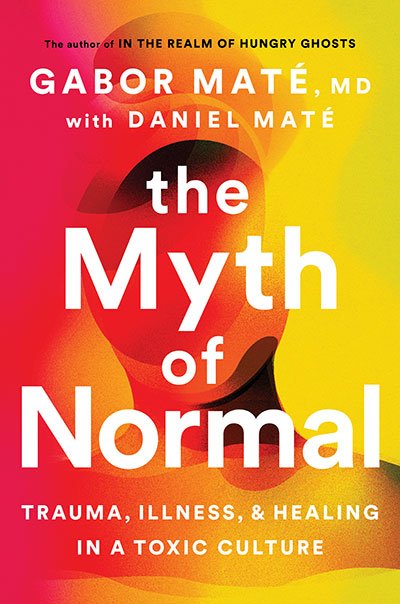The Dilemma of Attachment and Authenticity
/By Anne DeCore, AMFT
Trauma expert and renowned physician Gabor Maté has a new book out that I highly recommend. He writes poignantly about something that therapists talk about every day with clients. In “The Myth of Normal: Trauma, Illness and Healing in a Toxic Culture,” he states that the most widespread form of trauma in our society is the lower case “t” trauma of “disconnection from the self” in order to have attachment needs met by our parents. Because it is a largely invisible process, unlike upper case “T” trauma, people are often unable to identify how their childhood affected their development. I wanted to share Maté’s explanation of this process on the blog because I think this concept is essential for adults to understand as they self-reflect, and for parents to consider as they raise children.
Attachment is the core drive for proximity, responsiveness, and attunement from our caregivers from infancy and beyond.
Authenticity is the other core need: to be true to oneself, to honor our “gut” feelings, to express our felt emotions.
Maté explains the dilemma in these terms: “What happens if our needs for attachment are imperiled by our authenticity, our connection to what we truly feel?”
Maté tells us that the outcome of that dilemma is pre-determined. When a child senses that being true to their sense-of-self will not be acceptable to a parent, the child will conform to please the parent. We will always “secure our physical or emotional survival by relinquishing who we are and how we feel”. This adaptation is not something we have control over in childhood. Feedback loops with our caregivers over time get wired into our nervous systems and the internal adaptation to privilege inauthenticity becomes second nature. We even tell ourselves that certain traits within our personality are “who we are” instead of what they really are: the “scars of where we lost connection to ourselves”. A few examples of these traits are people-pleasing, hyper-responsibility, stoicism, perfectionism, compulsively charming, compulsively helping. Many of these adaptations in our families-of-origin are reinforced by society as admirable.
These adaptations work for us into adulthood until they don’t. There are costly consequences for repressing one’s thought, feelings and needs. Maté’s book impressively documents the link between inauthenticity and physical illness. Other consequences may be divorce, depression, addiction, and midlife fragmentation. These crises tend to force us to examine the self-concepts we hold. Often, these moments lead us to therapy.
Thankfully, Maté doesn’t leave us hopeless. He writes that developing self-awareness and self-compassion can carry us back toward authenticity. We can re-train the brain and nervous systems to expect both needs, attachment and authenticity, to simultaneously be served in our adult relationships.
Reference:
Maté, G. and Maté D. (2022). A Traumatic Tension: Attachment vs. Authenticity. In The Myth of Normal: Trauma, Illness and Healing in a Toxic Culture; (pp. 96-112). Penguin Random House.

